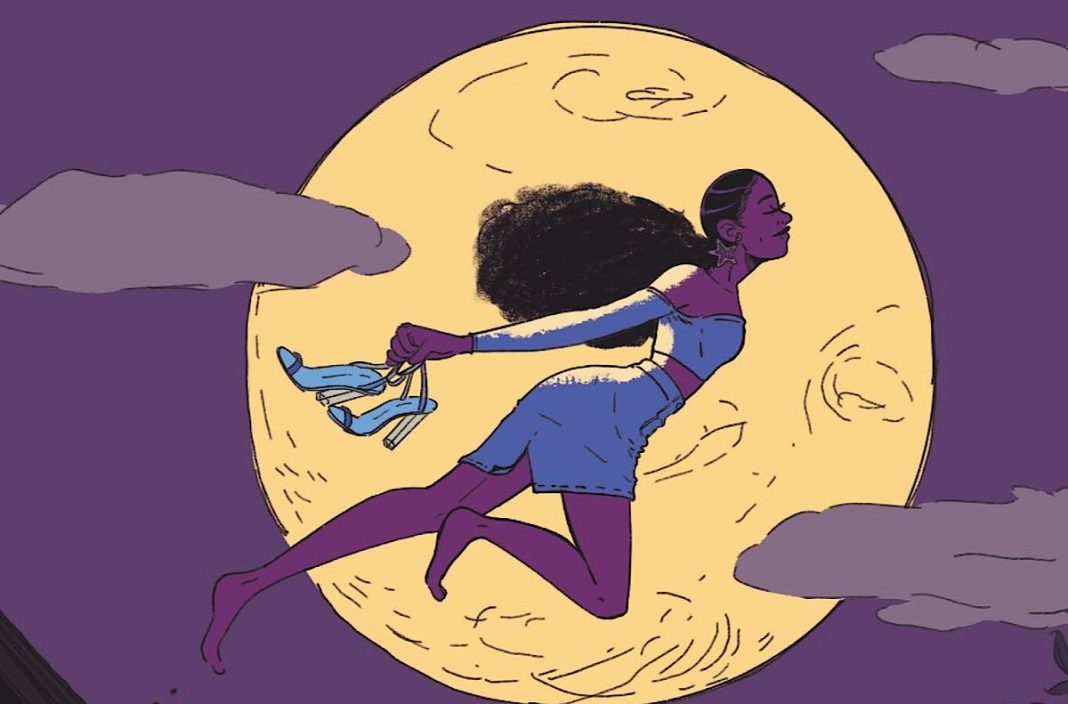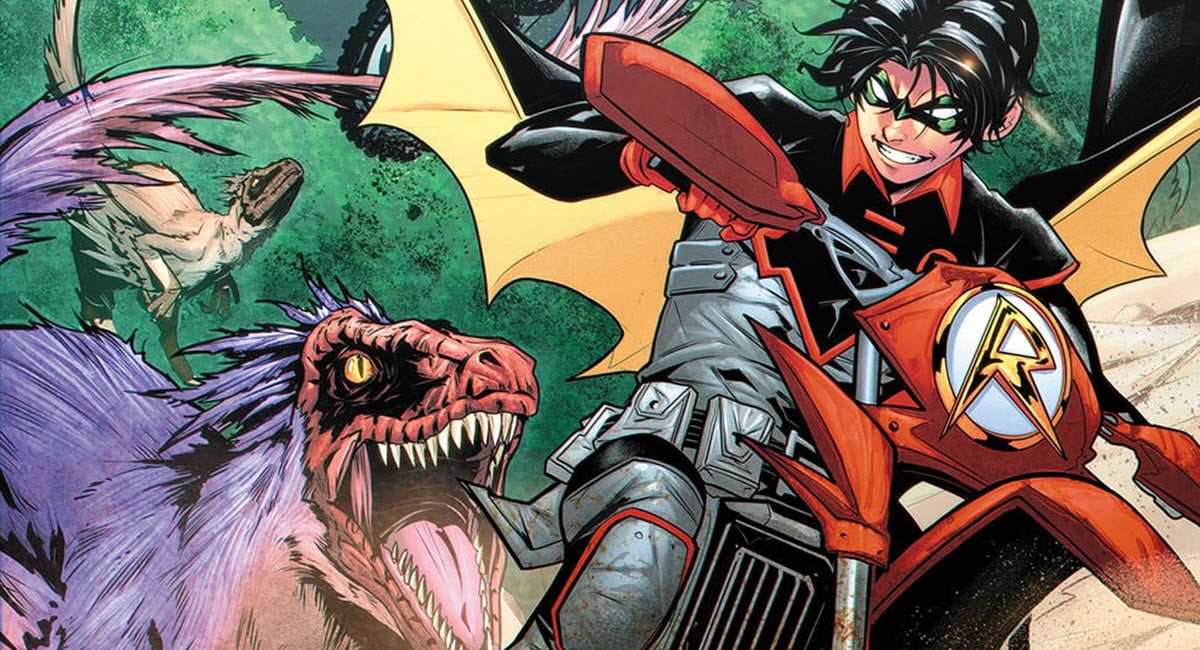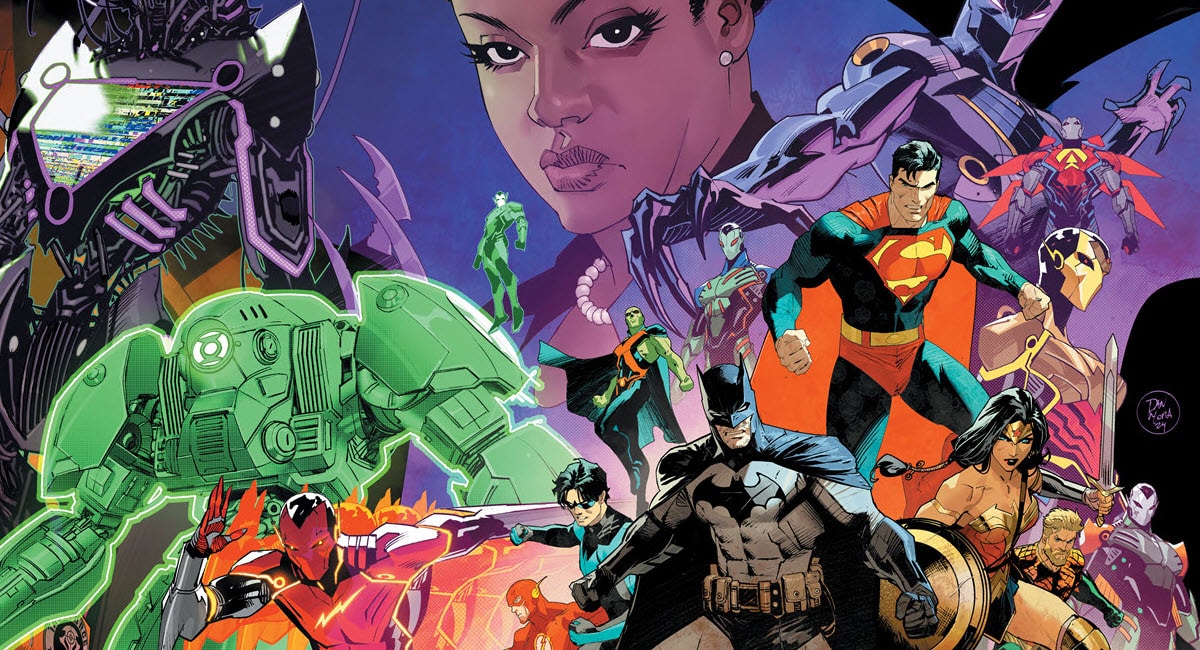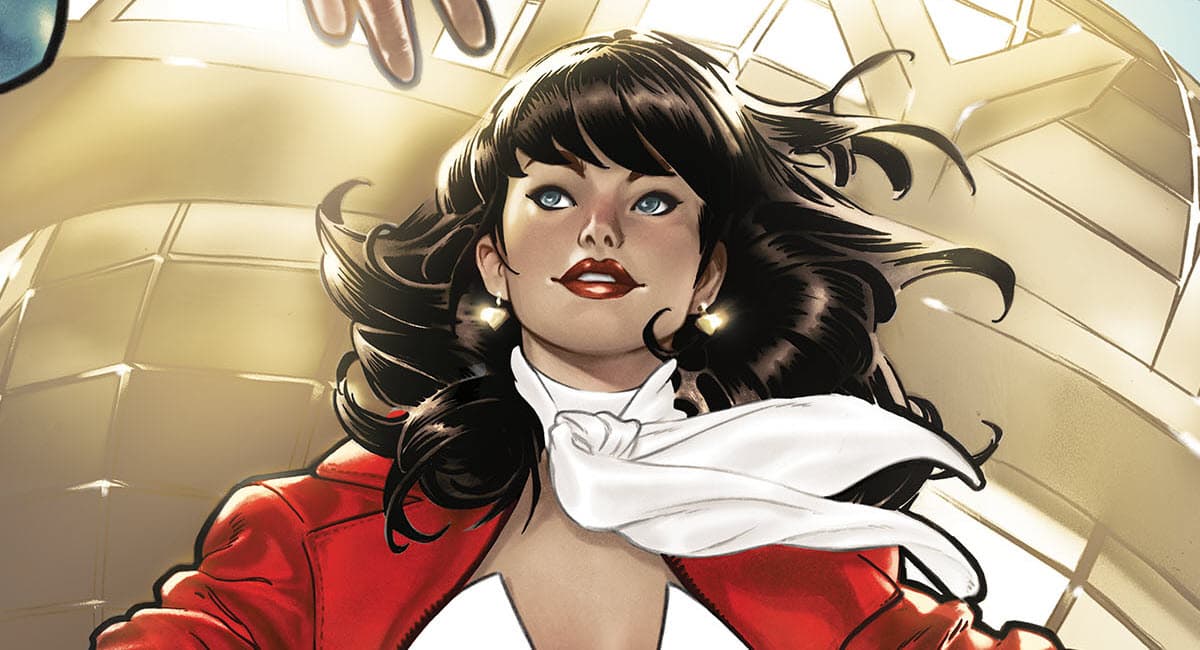Since her debut in 1973, Nubia has received short shrift as Wonder Woman’s twin sister, successor, and parallel-universe incarnation. But comic book newbies L. L. “Elle” McKinney (A Blade So Black) and Robyn Smith give this long neglected heroine new purpose and vision in Nubia: Real One, the latest release in DC’s line of young adult graphic novels. Their take moves Nubia from seventies background character and eye-candy to a fully-realized voice for the Black Lives Matter era.
Nubia is a high-school student who struggles with her own truth and identity. After being caught as a bystander in a convenience store robbery gone wrong, in which she uses her powers to rescue a fellow student and love interest, Nubia wrestles with the consequences of her actions. She faces racial profiling from police after the robbery; contends with unwanted sexual harassment from a fellow student; and must find the courage to stand by her moral convictions despite the attention it draws from the community she calls home. Nubia’s personal reckonings are a microcosm of the moment, a reflection of the voices of a generation and a thoughtful, nuanced hero for our troubled times.
McKinney and Smith joined The Beat to talk about what Nubia’s story means for a new generation of comic book readers.
Nancy Powell: What drew you to doing this comic? Had either of you done a superhero comic before?
Robyn Smith: No, I actually had never done a superhero comic before. I had attempted in undergrad, but it was mostly just a lot of research on Caribbean history and mixing that with lore, trying to make my own superhero thing. What drew me to Nubia was I loved reading superhero comics. I wanted to know more about her. And then being invited to actually draw her was something else. So of course I was going to say yes because I love comics about black women, and I love superhero comics! It was like the perfect meshing of the two.
L. L. McKinney: It was the same for me. I had known about Nubia. I thought about wanting to bring her to the forefront again as Diana’s twin sister. She had been used before, but she was never quite who she had once been. So I actually was invited to pitch a completely different story. And I thought I was going to be slick and slide her in as a side character that would then move to the point of being a main character. I was like, you know what? Even if it’s accidentally pushing her, they’re going to push her because she’s going to be in my story. So they said the other story was great, but can you focus entirely on Nubia? And I said, “Hell, yeah!”
I hadn’t written any comic book superheroes. I did do a short story once where I created my own hero during a time when you had heroes on Netflix who were saving the everyday person. You had Daredevil and Luke Cage, in particular. People talk about what’s it like having some black man, bulletproof, walking through the streets. And so I wrote a short story. I have never written a comic before. I’ve always been a fan. So, given the opportunity, I said yes, very much like Robyn.
Powell: In the story, the Black Lives Matter movement seems to play a major role in Nubia’s character development. Can you talk about the process of grounding her in the moment?
McKinney: I didn’t really set off to ground her using just Black Lives Matter. That was a big, important part of it. It was about a lot of things that kids today have to deal with that children haven’t had to deal with in the past, like the school shootings, and now people are paying closer attention to issues with harassment and consent, things like that. And so it was just this sort of situation where, and I’m talking about it more and more, where I had had kids who had talked about heroes in the world doing all the other great stuff, but nobody ever bothered to come and check on certain communities. Until then, I hadn’t thought about it. And these kids are absolutely right. So that’s what made me want to ground Nubia [in the moment].
The things that these kids are facing today is because they said heroes don’t know about or seem to care about or be impacted by any of that. And they were correct. So that’s why this story happened. It was sort of the stars aligning in a particular way, like I had heard that, and I had been given this opportunity to write about a hero that I didn’t know if it would ever happen again. I’m going to do this story. I’m going to take my chance.
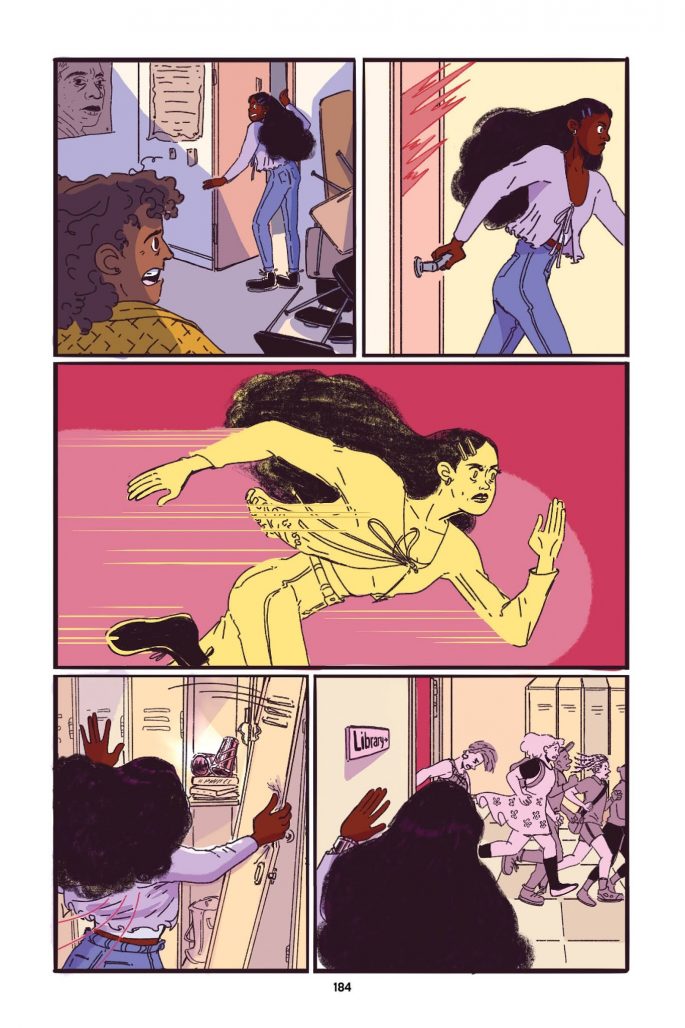
Powell: You have this ’70s heroine and all these ideas about how she should be developed. What were some of the challenges you faced in reimagining Nubia for the modern age?
McKinney: I think it was made easier by the fact that she didn’t have a lot, other than her origin. There was no interaction between Nubia and the real world. It was usually either on Themyscira or someplace connected directly to either the underworld or Themyscira. She never struck out into the modern world of man. We didn’t get to see her interact with it. So that lack of something from the storyline perspective just allowed me more room to play with her, which is both a blessing and a curse, because then she really doesn’t have anything else. But at the same time, that means you have much more freedom to work with. You’re not stepping on the toes of any other storyline.
Powell: Which books or comics influenced how you approached this story?
McKinney: I wrote it like I write other stories, so it wasn’t really influenced by comics because, again, there weren’t any comics I really touched on. And then there were lots of stories about these issues, and they deal with them from different aspects and different points of view. And everyone who has to deal with this in life, their story’s going to be different. So there really isn’t [anything] you can read to put that into the story. It really does come from lived experience.
Smith: When it came to thinking of what comics influenced me, how I approached drawing Nubia, the answer is Archie Comics. Archie is my main influence in terms of style, but also literally in the breaking down of panels and telling the story in a visually clever way, especially like Harry Lucey. He’s one of my favorite cartoonists. And even though you might not think that there’s a lot of action in Archie comics, a lot of the hijinx are illustrated in an extremely graceful way, so that if someone is reading a comic for the first time, it’s actually extremely easy to understand what’s going on.
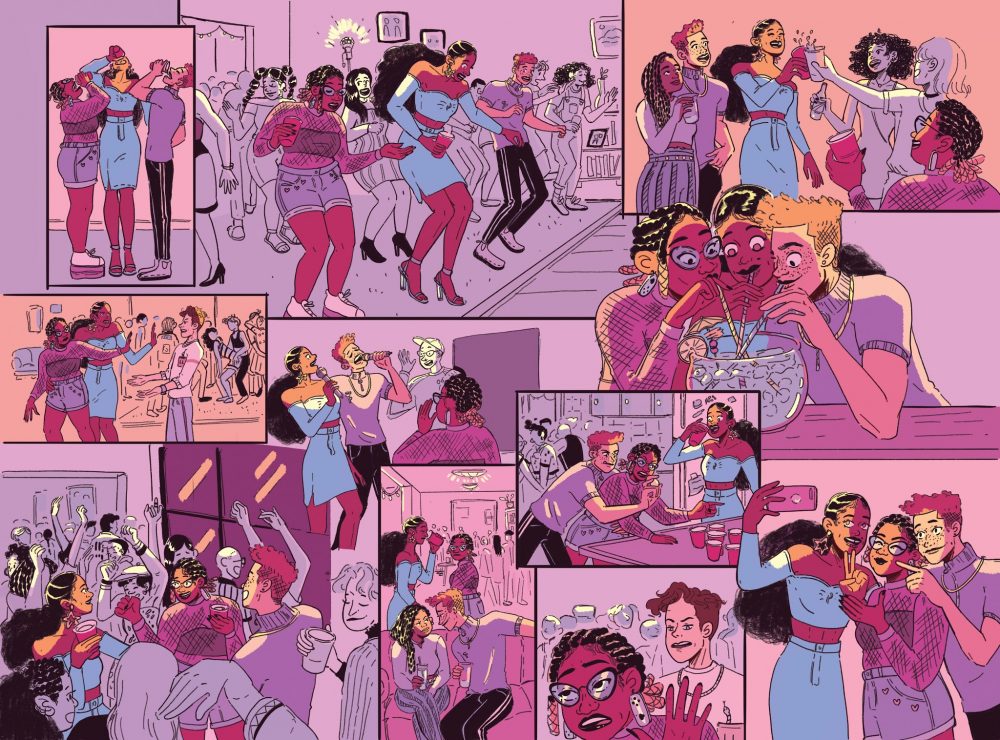
When I first approached reading superhero comics, as someone who was making comics already, I still found it hard to follow everything that’s happening in something that’s extremely high action. I called on my love of Archie to make Nubia as easy to read as possible. I wanted it to appeal to new readers who may have not seen themselves in comics before, so they never gave it a try.
So of course, I got my early copies and my mom doesn’t read comics, but she’s reading Nubia because I made it, and she is understanding the story. I even had her in mind when I was creating it because I wanted everything to be easy to read and simple as possible. And I also want to give props to Eleanor Davis’ The Hard Tomorrow. It’s definitely a more recent book, but it’s so good and it really amped me up for more of the protest scenes. It got me through drawing Nubia.
Powell: I love that you focused on that more introspective side of Nubia rather than the aspect of her as the kick-ass heroine, even though she’s just as good at that. Why was it important to give Nubia that more deliberative, evolutionary feel?
McKinney: Just to make sure you know her as a person as opposed to just a hero. The thing is, I didn’t want to fall into this idea of the ‘strong black woman’ trope because of this idea that black women don’t need to be loved or don’t need to be protected, they got it all together, so forth and so on. I wanted to push back on that.
Powell: So now, on to something fun. Nubia’s favorite comfort food in times of stress are cookies. So what are your favorite comfort foods in times of stress?
McKinney: I could use a cookie, actually! [laughs] I love fruit snacks. In particular, Fruit By The Foot and Fruit Roll-Ups.
Smith: There is this really soft Caribbean bread called hard dough bread. And it’s my favorite, favorite thing to eat, especially for comfort food. There’s always hard dough bread in the house.
McKinney: And I have had one once that lives in my memory!
Powell: Of all Nubia’s superpowers, which is the one that you would most like to have?
McKinney: Well, I’m going to say, in looking at her powers as a whole, because in the graphic novel, she’s coming into certain powers in particular, like her speed and her strength. She can’t fly just yet. It would be fun to explore her flight. I would like to fly just so I could go places and not have to bother with people when I’m trying to get places.
Smith: So I definitely want to punch and throw people. That also looks really good.
McKinney: That’s also good for me!
Powell: And can we expect more new books in the future?
McKinney: I mean, I would really love to do them!
Smith: I hope so.
Published by DC Comics, Nubia: Real One is available in stores and digitally now.


